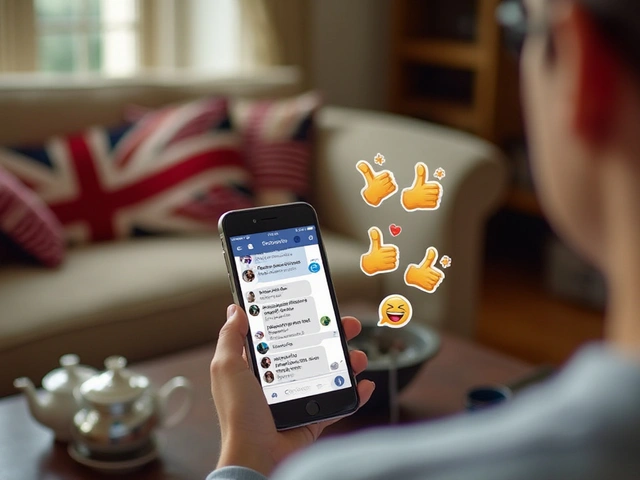Understanding Propaganda in the Digital Landscape
Living in Perth, I find myself surrounded by a mélange of cultures and perspectives, mirroring the globalized digital world where information flows freely yet is fraught with complexities. At the intersection of technology and society, propaganda has evolved from simplistic posters of wartime eras to sophisticated digital campaigns, weaving seamlessly into our daily digest of information. This digital transformation demands nuanced understanding and analytical capabilities beyond traditional methods. Recognizing patterns, discerning biases, and extracting truth from digital propaganda are challenges that ChatGPT, with its AI-driven insights, is uniquely positioned to address.
Throughout history, propaganda has been leveraged to influence public opinion and political agendas. The digital age, however, amplifies its reach and efficacy, enabling messages to be tailored and distributed across global networks instantaneously. The capacity of AI technologies, particularly ChatGPT, to analyze vast datasets and identify subtle nuances in language, offers an unprecedented opportunity to decode these complex messages. This capability not only enhances our understanding of digital propaganda but also equips us to engage with information more critically.
The Evolution of ChatGPT: From Origins to Information Guardians
Witnessing the birth and growth of AI technologies like ChatGPT from my vantage point in Perth has been nothing short of a revelation. Initially developed to understand and generate human-like text, ChatGPT's applications have expanded significantly. Its evolution from a simple conversational agent to a powerful tool for analyzing and decoding information underscores its potential in combating digital propaganda. By leveraging vast pools of data and learning from interactions, ChatGPT develops nuanced understanding of language's role in shaping narratives and influencing perceptions.
The significance of ChatGPT's evolution lies not just in its technical advancements but in its transformation into a societal tool. It represents a shift towards democratizing the analysis of information, making sophisticated analytical tools accessible to the broader public. This evolution opens new pathways for individuals to critically analyze and understand the information that shapes their perceptions of the world, offering a bulwark against the manipulative tactics of digital propaganda.
ChatGPT’s Role in Decoding Propaganda
At the core of ChatGPT's utility in propaganda analysis is its ability to process and understand language at an almost human level. This capability allows it to sift through the vast amount of information that constitutes the digital media landscape, identifying patterns, inconsistencies, and biases that may indicate manipulative intent. By analyzing language use, context, and dissemination channels, ChatGPT can uncover the subtle mechanisms through which propaganda seeks to influence its audience. This analytical capacity is not just theoretical; it has practical implications for educators, policymakers, journalists, and the general public in recognizing and combating misinformation.
Utilizing ChatGPT to decode propaganda involves more than just identifying misleading information; it encompasses understanding the strategies employed to craft compelling narratives. This understanding allows for a more informed engagement with media and a critical stance towards information consumption. As someone living in the digital age, recognizing the power of AI tools like ChatGPT to dissect and analyze the influx of information we face daily is empowering. It transforms passive consumers of media into active analyzers, capable of questioning and critiquing the information that shapes our views and beliefs.
Practical Applications of ChatGPT in Information Decoding
Exploring the practical applications of ChatGPT in decoding propaganda reveals a plethora of opportunities for enhancing media literacy and critical thinking. For instance, educators can integrate ChatGPT into their curricula to teach students about identifying biases and analyzing sources. Journalists and researchers can leverage its analytical capabilities to investigate the origins and impacts of specific propaganda campaigns. Moreover, policymakers can use insights derived from ChatGPT to craft more effective regulations that address the spread of misinformation.
The versatility of ChatGPT in practical applications extends to everyday internet users. By engaging with this technology, individuals learn to question the information presented to them, discern trustworthy sources, and navigate the complex landscape of digital media with a critical eye. The empowerment that comes from being able to uncover and understand the motivations behind the information we consume is invaluable in today’s fast-paced, information-rich environment.
Challenges and Limitations of ChatGPT in Propaganda Analysis
While the potential of ChatGPT in decoding propaganda is immense, it's crucial to acknowledge its limitations. The accuracy of its analysis depends heavily on the data it's trained on, which can introduce biases or blind spots. Additionally, the sophistication of digital propaganda techniques continues to evolve, presenting ongoing challenges for AI technologies in keeping pace. Recognizing these limitations is essential in responsibly using ChatGPT, treating it not as a panacea but as a tool to supplement human judgment and critical thinking.
The dynamic nature of digital propaganda necessitates continuous updates and refinements to AI models like ChatGPT. Collaborative efforts between developers, researchers, and end-users play a crucial role in enhancing its effectiveness. Embracing a critical and informed approach to using ChatGPT can mitigate its limitations while maximizing its contributions to understanding and combating propaganda.
Fostering Media Literacy in the Digital Age
The role of ChatGPT in fostering media literacy extends beyond simple propaganda analysis. It serves as a catalyst for encouraging critical engagement with all forms of media. By demonstrating the capabilities of AI in dissecting and understanding complex information, ChatGPT inspires individuals to adopt a more analytical mindset towards media consumption. Developing media literacy skills is crucial in navigating the current landscape, where digital propaganda can easily sway public opinion and influence behaviors.
Incorporating AI tools like ChatGPT in educational initiatives can significantly enhance media literacy, equipping individuals with the skills needed to critically analyze information, understand biases, and identify trustworthy sources. This empowerment is essential for fostering a well-informed and discerning public, capable of making decisions based on a comprehensive understanding of the information landscape.
Conclusion: Navigating the Future with AI and Information Literacy
As we continue to navigate the complex interplay between technology and society, ChatGPT emerges as a pivotal tool in decoding propaganda and enhancing media literacy. Its contributions, however, should be viewed as part of a broader strategy that includes education, policy, and collaborative efforts to address misinformation. By embracing AI tools like ChatGPT, we can enhance our collective ability to critically engage with information, fostering a more informed and resilient society in the face of evolving digital propaganda tactics.
The journey towards understanding and combating propaganda in the digital age is ongoing, with ChatGPT playing a crucial role in illuminating the path forward. Its implications extend beyond mere analysis, inspiring a shift towards a more critical and informed approach to information consumption. As we venture further into this digital era, the synergy between human insight and AI capabilities like those of ChatGPT will be essential in navigating the challenges and opportunities that lie ahead.




Write a comment